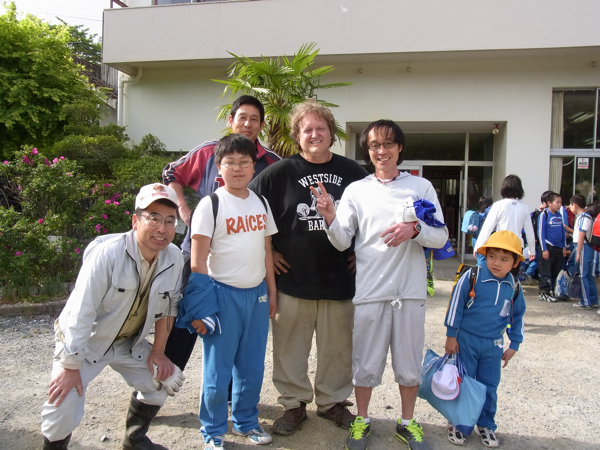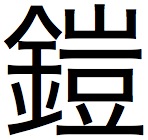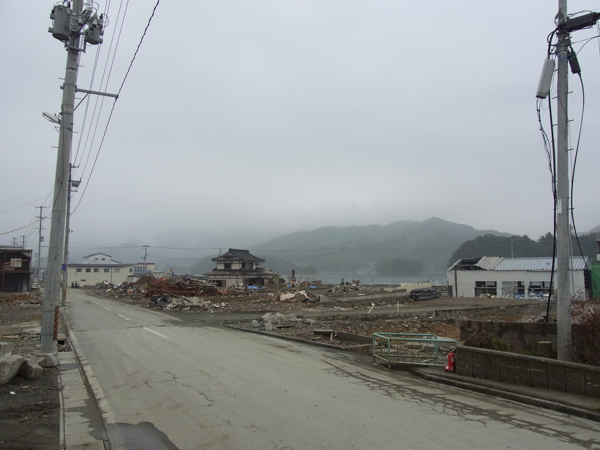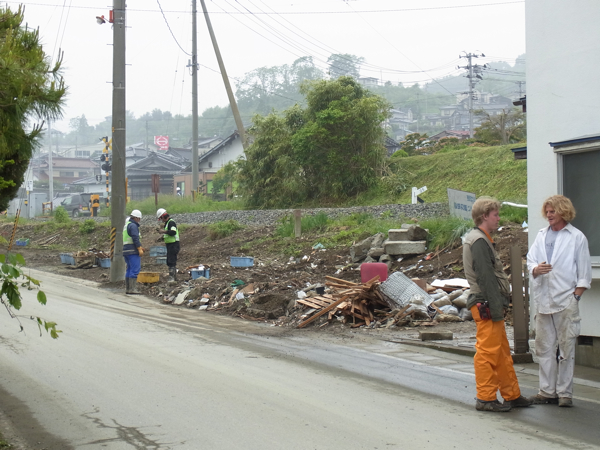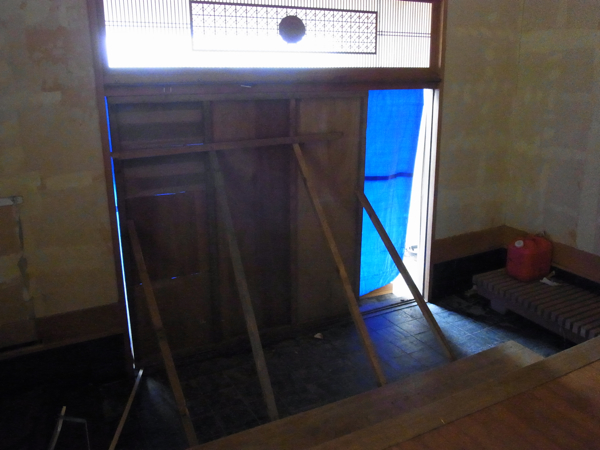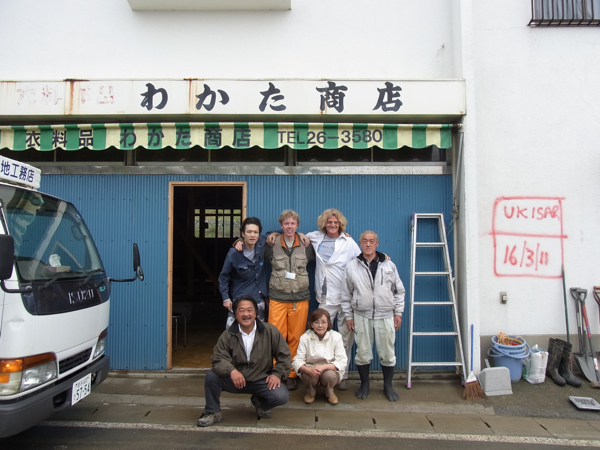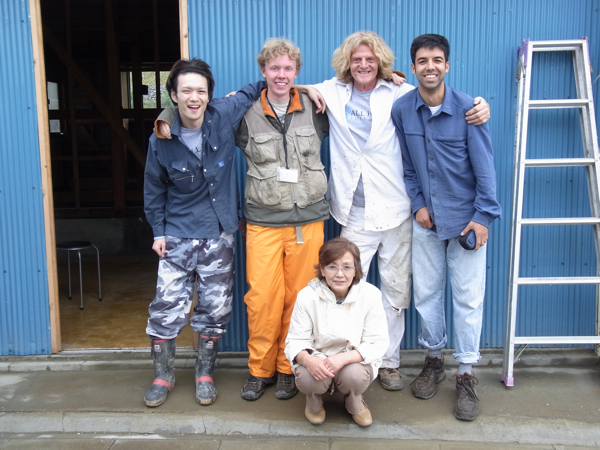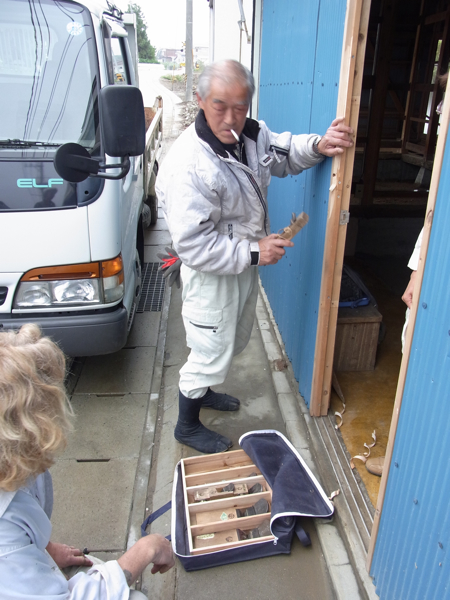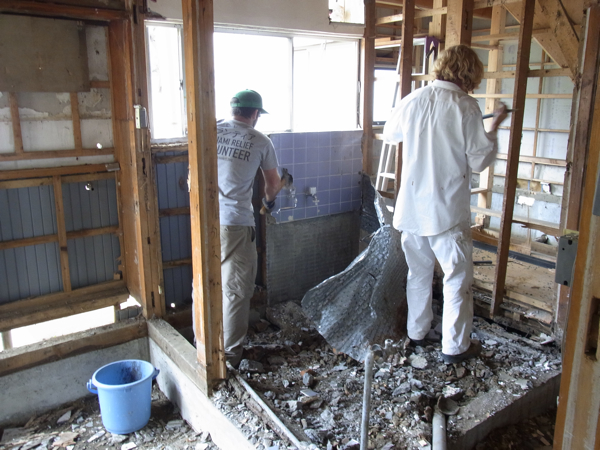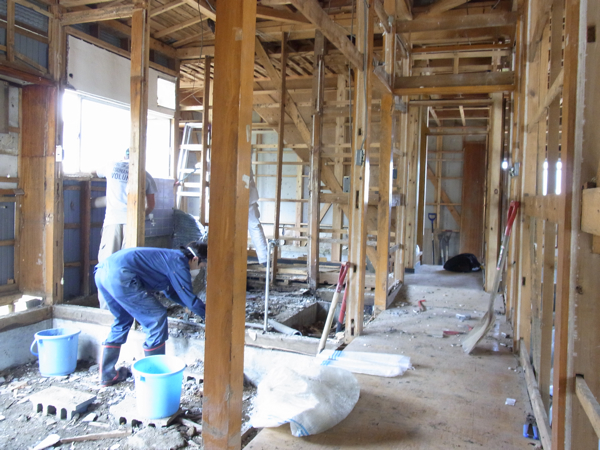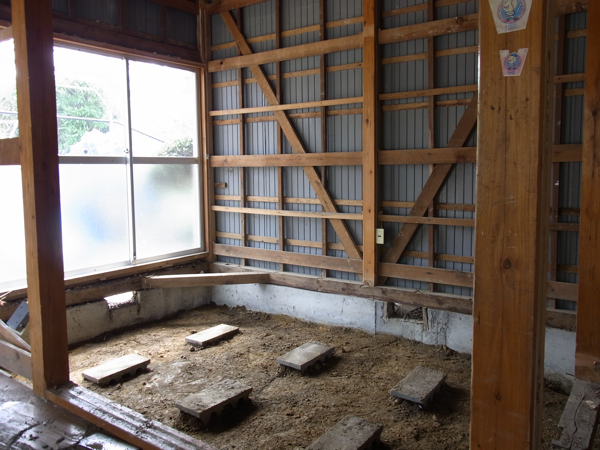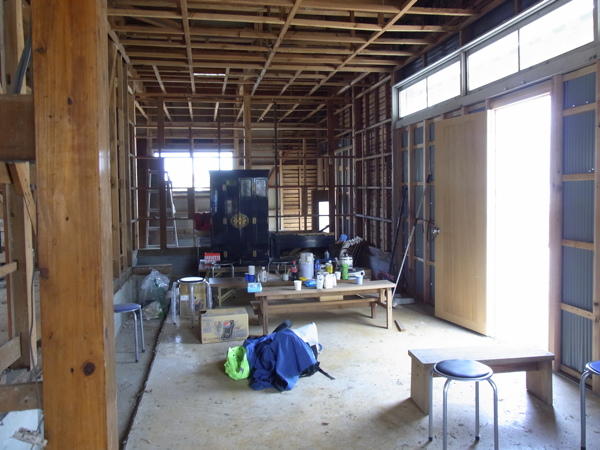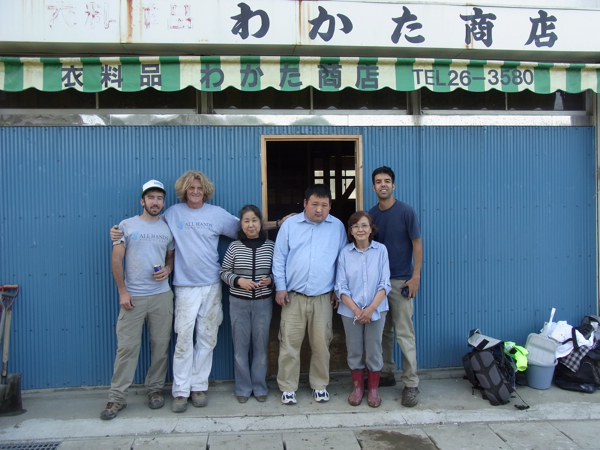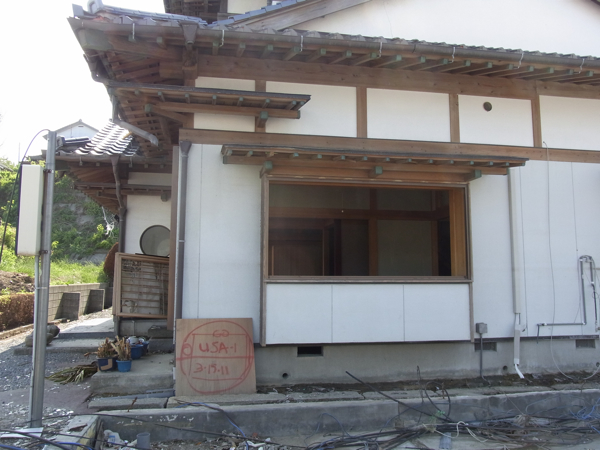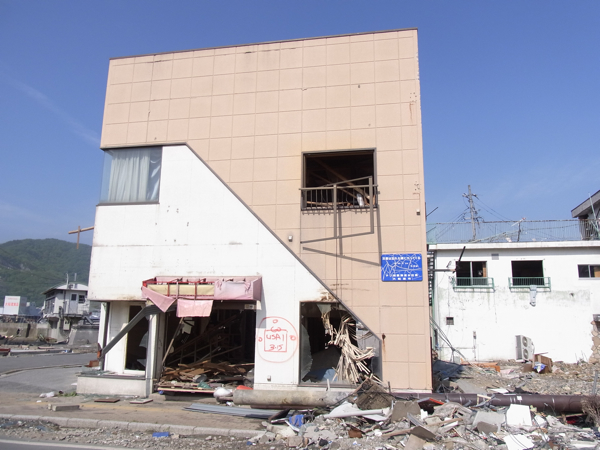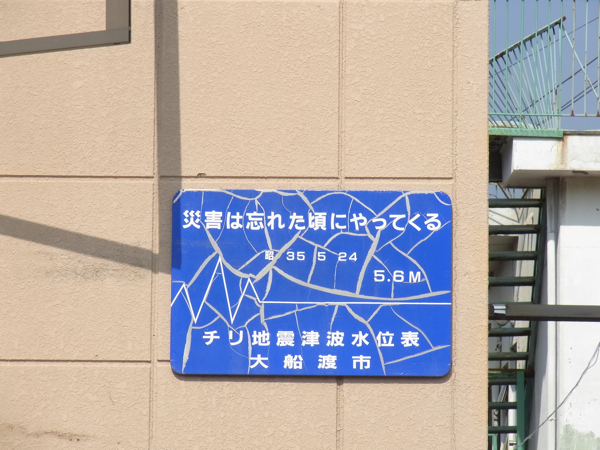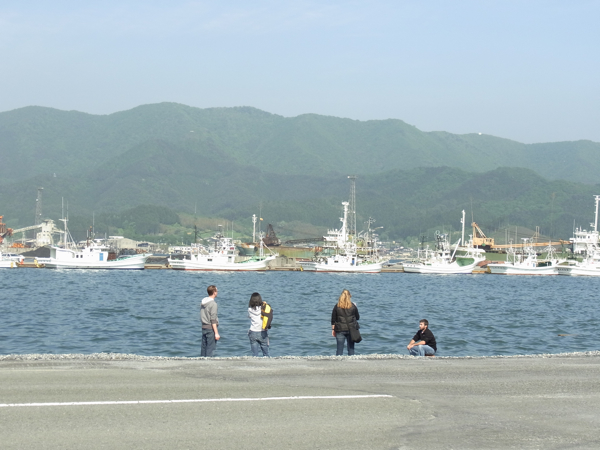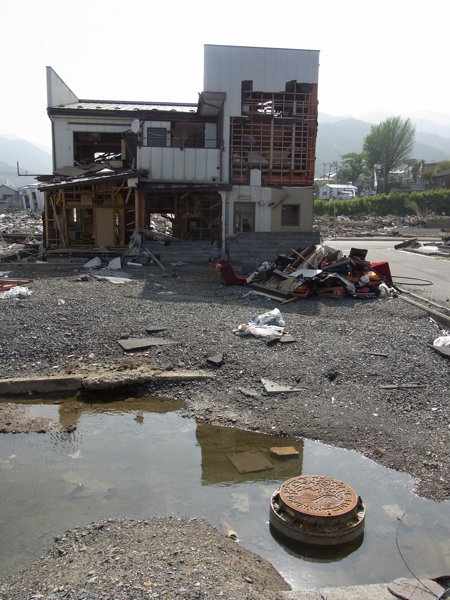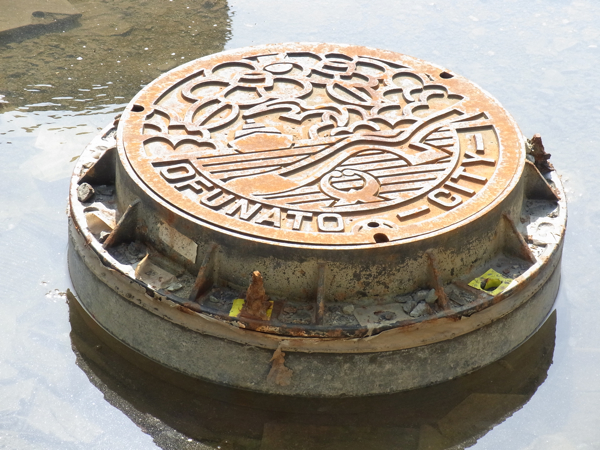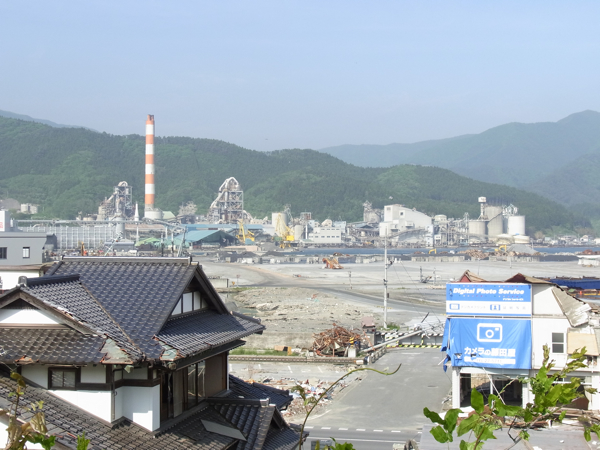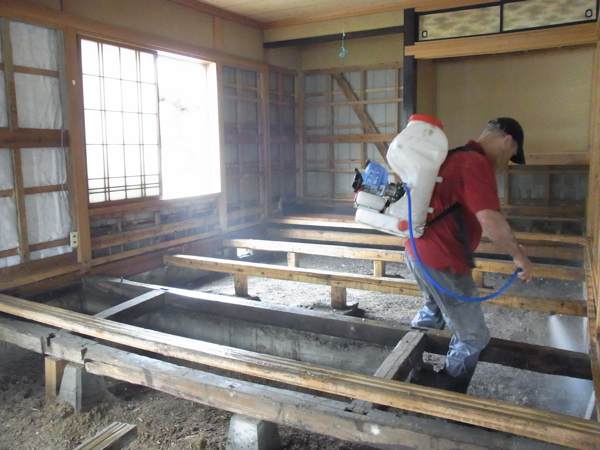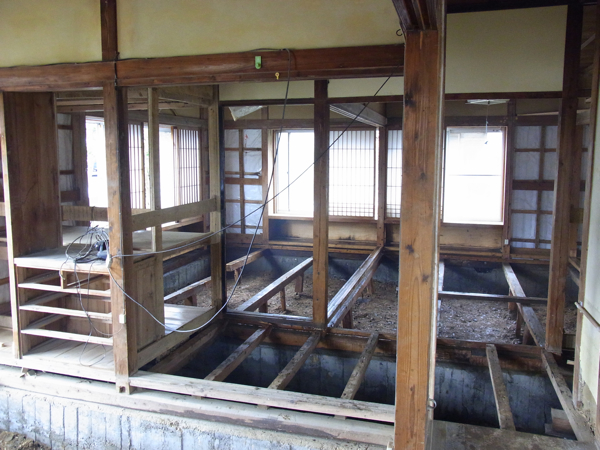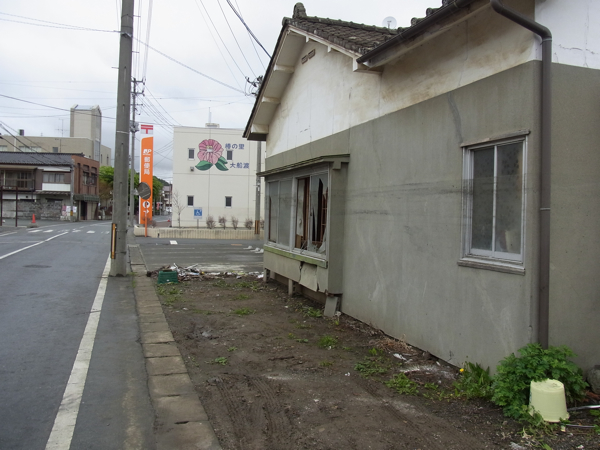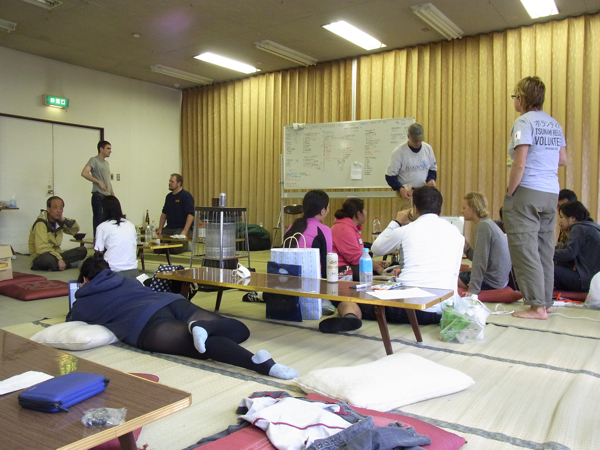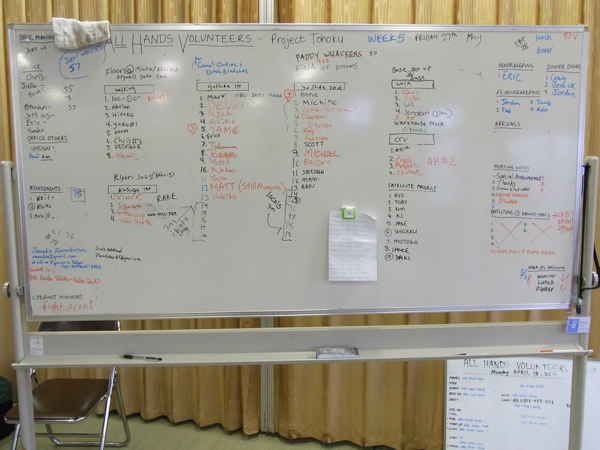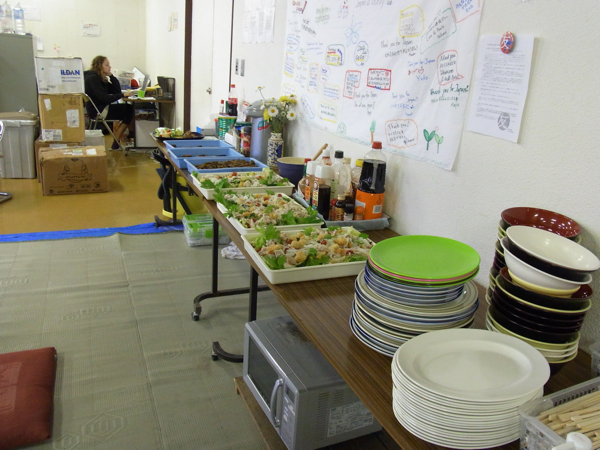Well, I didn’t really get a chance to play with the kids today, but we did get a lot of work done, and there were a lot of kids around, so it didn’t really feel as strenuous as some of the other days so far.
We hopped on the bus with a team headed to a fish warehouse right on the coast. The area was wrecked, but surprisingly there were still some buildings standing – this may sound like a running refrain…I guess I was surprised considering some of the footage I had seen, not all of which came from Ofunato, clearly. It isn’t a total wasteland like you might imagine. The fish team had to remove a lot of rotten seaweed that had been sitting in cardboard boxes for two months. They stank so much on return that they went straight into the shower and their clothes into the wash (which apparently wasn’t that effective).
We continued on along the coast, past an immense factory (to make concrete apparently) with lots of tubes and hugely tall structures connected (like something out of FFVII), past two boats which had washed up onto the shore and stuck out onto the road, and then eventually up a hill to the school…which was untouched by the tsunami other than the temporary housing that had been installed in the school yard and some of the athletic fields. Part of this job was doing some maintenance work for the school, and the other part was PR and connection building – this was the first project that went into schools in the area, and it sounds like All Hands is looking forward to doing more work in the future.
We had two groups. The first removed cinder blocks from a garden in front of the school which we were later going to use behind a shed in back of the school. The second group, my group, was cleaning out a ditch behind the shed, organizing a big pile of wood that had been rotting behind the shed, and then stacking the cinder blocks on top of the drainage ditch. The area around the shed hadn’t been cleaned for thirty years.
The first group did wonderful. They totally cleared the cinder blocks and then took off the first few inches of topsoil to create a nice, soft area of earth for the kids to play on. At the end of the day it was great to see many of them running around on it, especially since a lot of their normal play area is occupied by housing.
The second group did good, but we weren’t able to totally finish. We moved all of the wood, threw out the rotten wood, restacked the wood neatly after clearing the area, removed all the leaves and brush from about 90% of the drainage ditch, and dumped all of the brush on a compost pile. One of the drainage ditches had partially collapsed, so we began to dig it out to stand it upright, but we didn’t have enough time unfortunately. Hopefully we’ll have the chance to go back and finish and do some other odd jobs.
The kids came out and talked with us on their recess. They were very curious, and the teachers were all thankful, especially the teacher whose tire our team leader Chris changed for him – the teacher got a flat on the way to work and had been unable to remove the tire.
One part of our team went to play with the kids after lunch, and several of the others joined in at around 3pm. At one point we helped other teachers in the school building move boxes from the gymnasium to classrooms.
I had the most fun talking with the principal of the school who was a loud, friendly guy – not your typical elementary school principal. In the schools where I taught, the principals were always nice but often secluded in their often. The one impression I have of them is that they always ate lunch really early. I always thought it was strange and possibly even rude until I learned it was a recognized procedure (apparently)…something about having someone available while others are eating or maybe to test the food for poison?
Well this principal was outside all day with us, helping rake leaves, dig dirt, talking with the Japanese speakers. He was really happy to have us there, and I hope we have a chance to go back. At the end of the day he asked us if we drank beer, which is usually a sort of indirect invitation to go out for drinks, and as we all know, real business gets done over drinks in Japan; hopefully this means that All Hands will be in good shape for future school projects.
Pictures forthcoming…
Update – pictures:
Here’s Sakari Base from the outside:
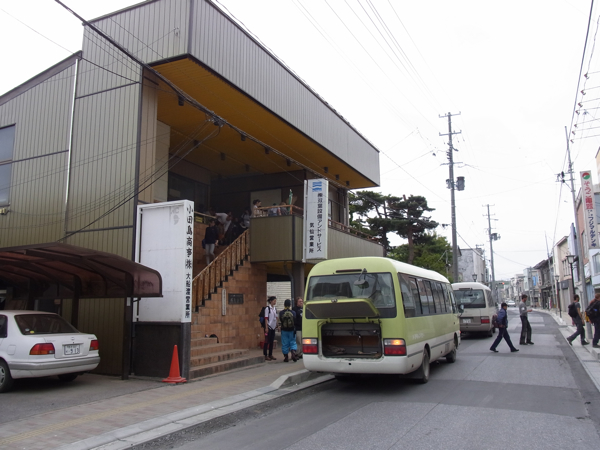
And some shots along the coast from the drive to the school:

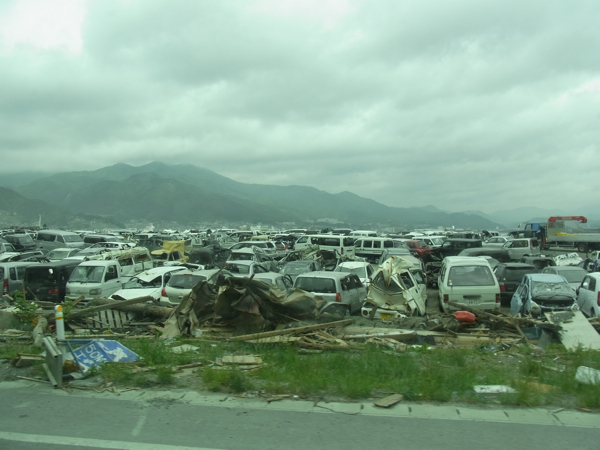


Here’s the school we visited. You can see some of the temporary housing in the lower corner of the photo:
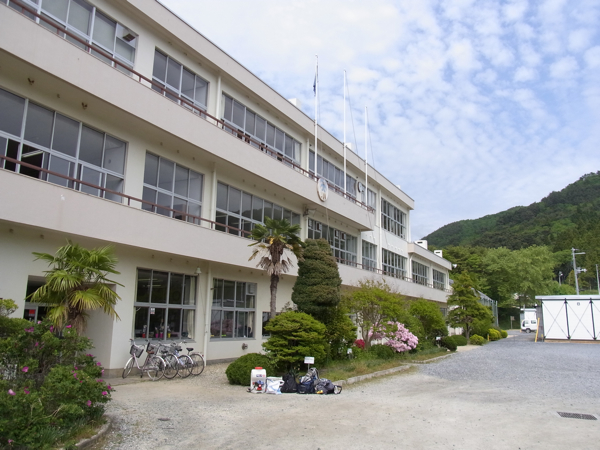
Paul with a load of soil from the work on the lawn in front of the school:
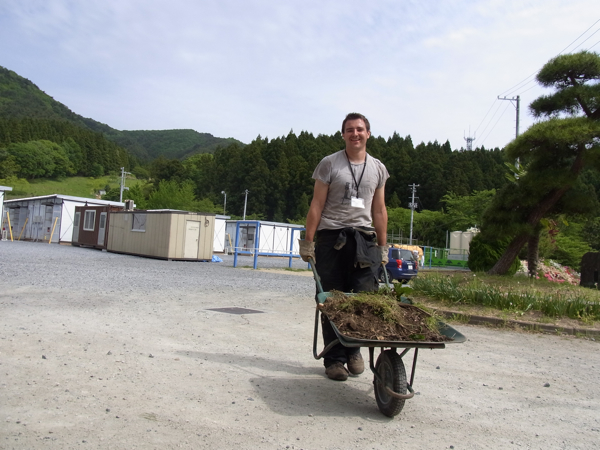
Ditches filled with leaves and then the finished product:
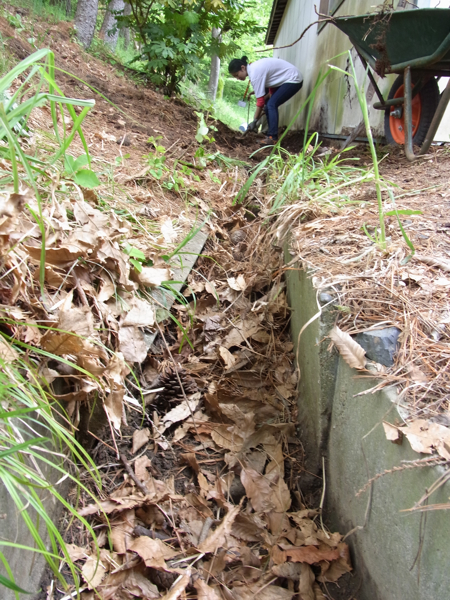
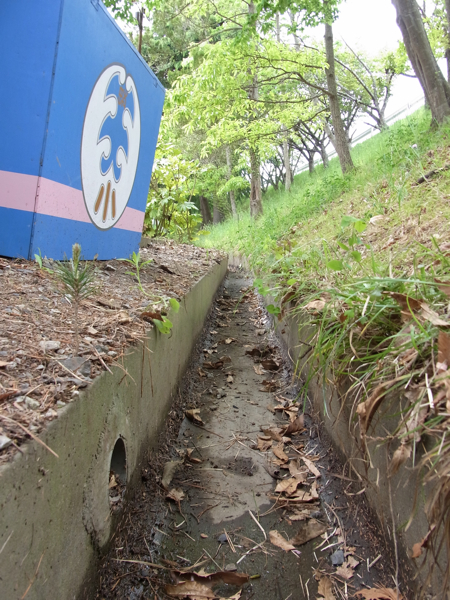
Neat and tidy pile of wood on the side of the toolshed, our pile of cinder blocks from the front garden and in the distance the compost heap where we dumped the leaves:
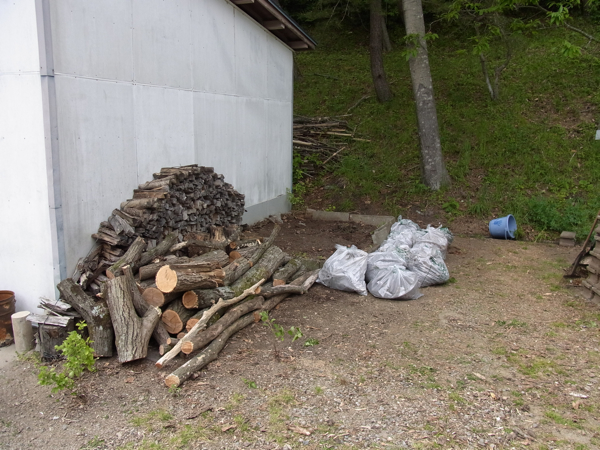

A nice, smooth patch of soil for the kids to play on:
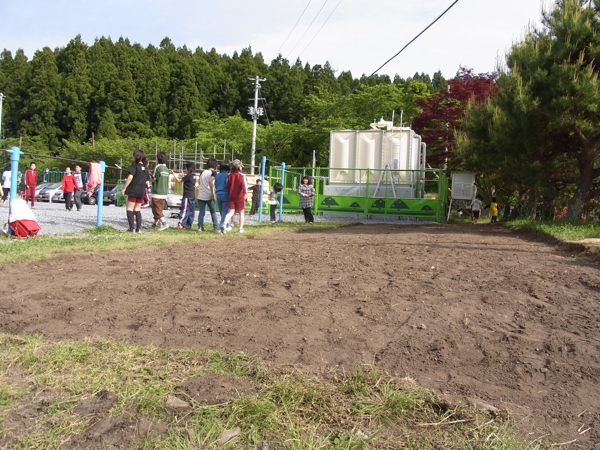
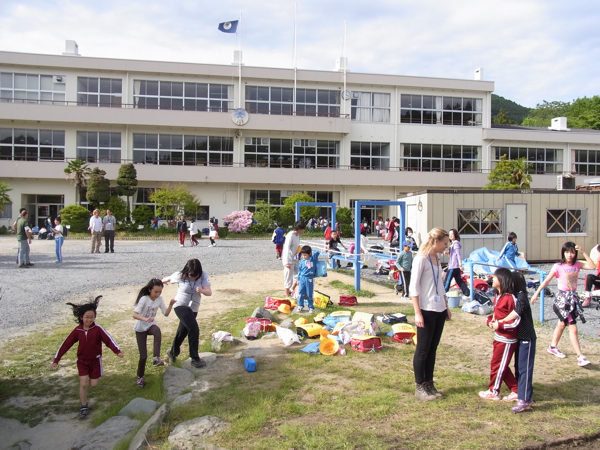
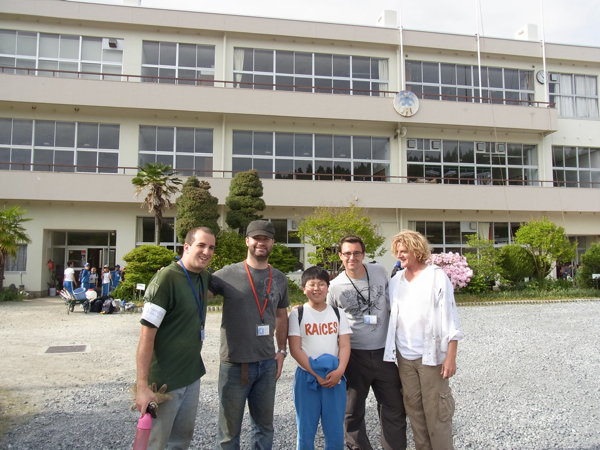
Team leader Chris with the principal (on the far left) and the lucky teacher whose tire Chris changed (right of Chris):
